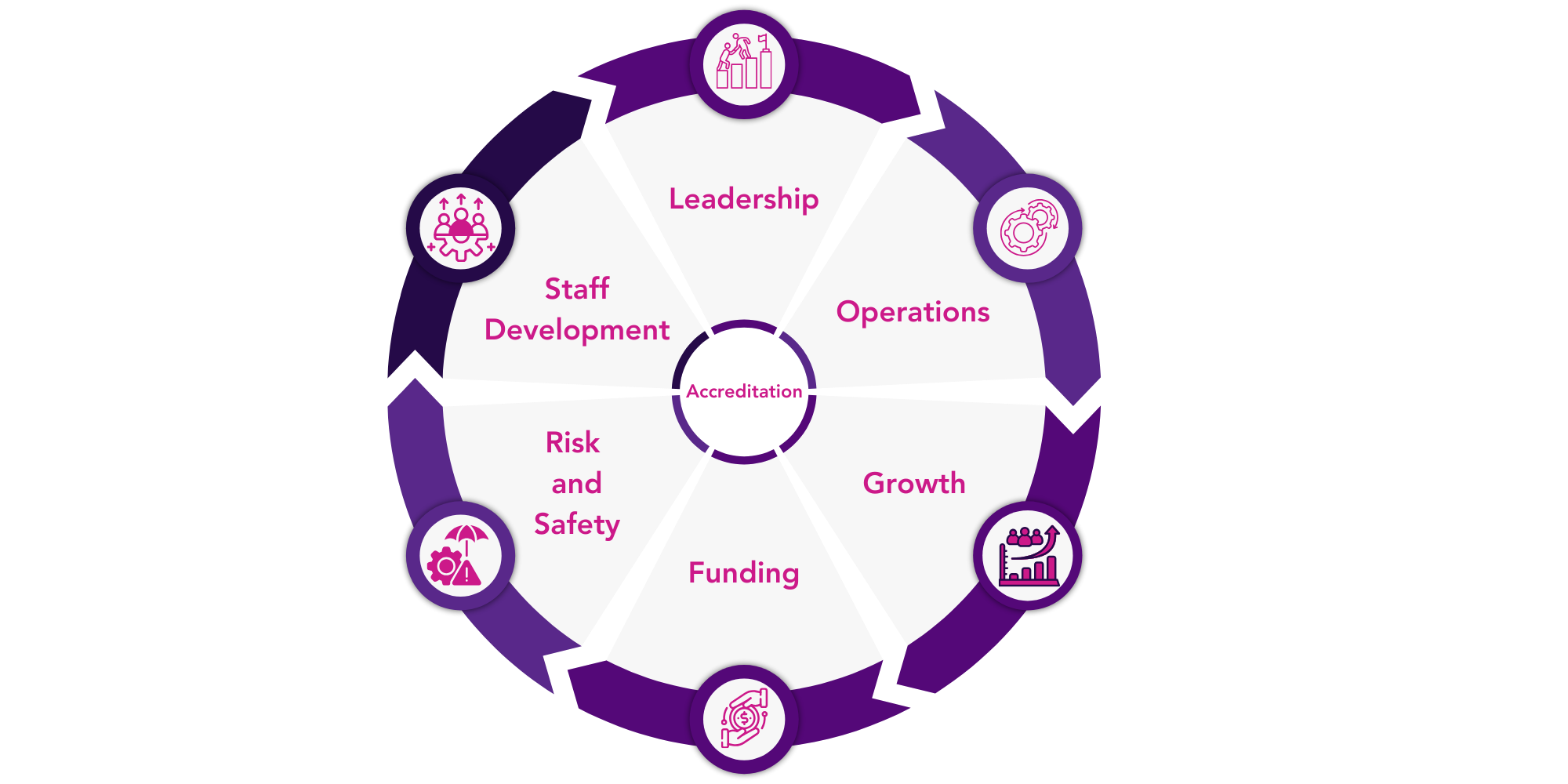From Good to Great: How Accreditation Transforms Human Service Organizations
When a human service organization chooses to pursue national accreditation, it's making more than a business decision—it’s committing to excellence. Accreditation means opening up every part of the organization – its leadership, programs, policies, and records – to outside scrutiny. It requires thoughtful reflection, transparency, and a willingness to grow. More than a one-time event, accreditation reshapes how organizations operate, day in and day out.
Accreditation vs. Licensing: What’s the Difference?
Licensing ensures that organizations meet the basic legal requirements to operate. Accreditation, on the other hand, raises the bar. Accreditation asks: Are you doing the best work possible for those you serve? Accredited organizations demonstrate consistency, quality, and meaningful outcomes. For families, funders, and oversight bodies, accreditation is a clear signal that an organization is not just compliant—but exceptional.
Accreditation Strengthens the Work That Happens Every Day
Accreditation encourages organizations to examine how the operate from top to bottom. Leadership practices, service delivery methods, risk protocols, and staffing models are all evaluated and strengthened. Staff gain clarity on expectations, and leadership gains insight into real risks and opportunities. Over time, decision-making becomes clearer, services become more reliable, and the entire agency becomes easier to manage. The result? Organizations report better client intake processes, stronger care plans, improved internal communication, and quicker issue resolution – improvements that enhance the daily experience of staff and clients alike.
Prepare for the Unexpected
All human service organizations face risk, from client safety incidents to financial audits to sudden leadership turnover. Accreditation helps build systems that prevent small problems from escalating into crises. Emergency planning, risk management, financial oversight, and health and safety protections become integral to operations. When challenges arise, accredited organizations are better prepared to respond with confidence.
A Competitive Edge in Funding and Partnerships
In today’s funding landscape, government agencies, and insurers, and foundations either strongly prefer or require accreditation. Without it, organizations risk missing major contracts or reimbursement opportunities. Accreditation also builds credibility with community partners and collaborators, opening doors to strategic partnerships, grants, and new funding streams.
Long-Term Savings
Although there are upfront costs associated with accreditation – application fees, preparation time, operational upgrades – there are clear financial advantages. Accredited organizations may see considerations against liability insurance premiums by demonstrating strong risk management. It can also streamline oversight from Medicaid or Medicare, saving time and money. Over time, the efficiency gains and risk reductions created by accreditation usually outweigh the initial investments.
Building a Stronger Team
Accreditation helps create a workplace culture where expectations are clear and staff feel supported. Staff training aligns with both professional standards and client needs, making it easier to recruit and retain skilled professionals. When people work in an environment that values quality and consistency, morale improves and turnover decreases.
Laying the Groundwork for Growth
Organizations with accreditation are better positioned to grow. Whether expanding services or launching new programs, the operational systems built through accreditation help ensure that growth is strategic and sustainable. Instead of scrambling to rebuild structures at each stage of expansion, accredited organizations already have the planning, staffing, and operational models in place to manage growth effectively.
An Investment in Trust
At the heart of it all, accreditation builds trust. Families, funders, and the public turn to human service organizations during life's more vulnerable moments. Accreditation is proof that an agency is committed to doing things right—ethically, safely, and effectively. In a world full of promises, accreditation is a promise kept.
If you would like to learn more about how accreditation can take your organization to the next level, click here.


